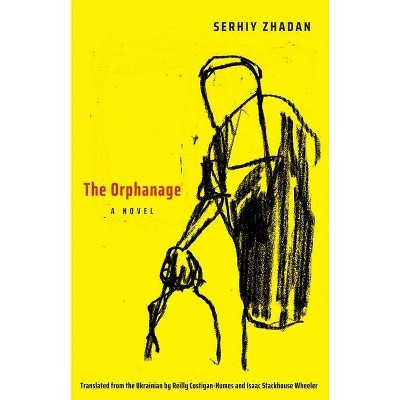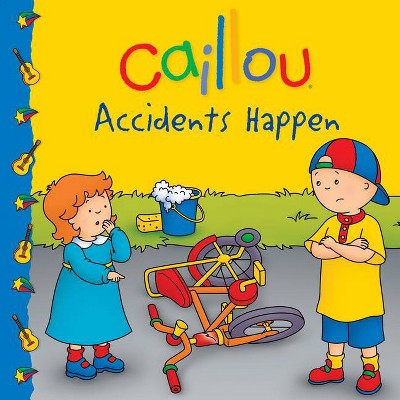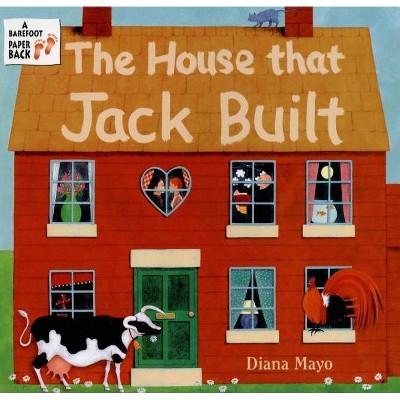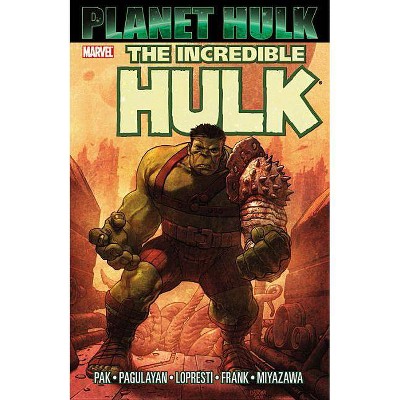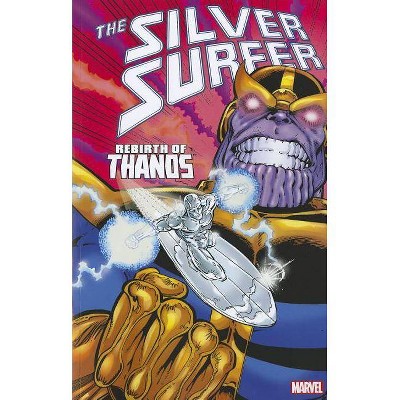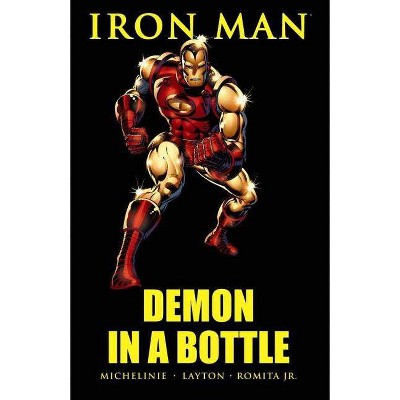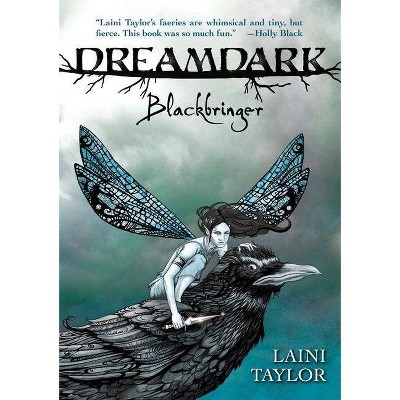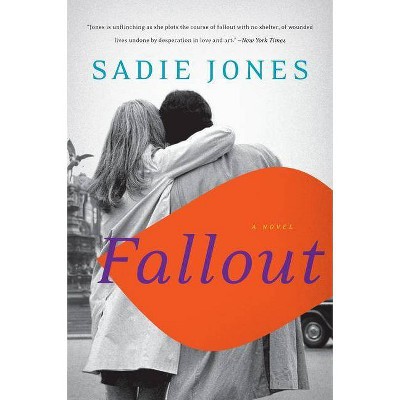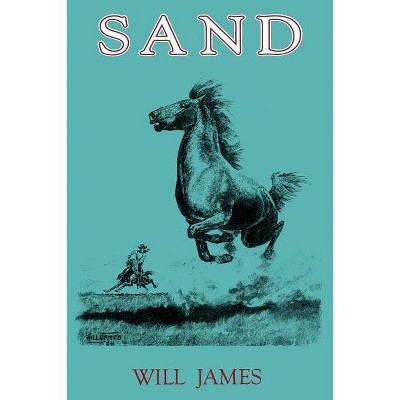Voroshilovgrad - by Serhiy Zhadan (Paperback)

Similar Products
Products of same category from the store
AllProduct info
<p/><br></br><p><b> About the Book </b></p></br></br><i>Easy Rider</i> meets <i>Pedro Páramo</i> in this darkly funny, fast-paced road novel that barrels through eastern Ukraine's ravaged industrial landscape.<p/><br></br><p><b> Book Synopsis </b></p></br></br><p>Trainspotting set against a grim post-Soviet backdrop. -- <b><i>Newsweek</i></b></p><p><i><b>World Literature Today</i>'s Recommended Summer Reads 2016</b></p><p>A city-dwelling executive heads home to take over his brother's gas station after his mysterious disappearance, but all he finds at home are mysteries and ghosts. The bleak industrial landscape of now-war-torn eastern Ukraine sets the stage for <i>Voroshilovgrad</i>, the Soviet era name of the Ukranian city of Luhansk, mixing magical realism and exhilarating road novel in poetic, powerful, and expressive prose.</p><p><b>Serhiy Zhadan</b>, one of the key figureheads in contemporary Ukrainian literature and the most famous poet in the country, has become the voice of Ukraine's Euro-Maidan movement. He lives in Kharkiv, Ukraine.<br><p/><br></br><p><b> Review Quotes </b></p></br></br><br>"<em>Voroshilovgrad</em> is an unsentimental novel about human relationships in conditions of brutality in which there is not a single act of betrayal... In his prose there is no nostalgia, but there is genuine affection, rough and profound. Even in this brutish habitus, there is trust, loyalty, and love." -- <strong>Marci Shore, <em>The New Yorker</em></strong> <p/><em>Voroshilovgrad</em> is more, however, than an exercise in post-Soviet social realism. There is something deeply mythological about the novel, and, like many myths, it is a story of homecoming. . . . Zhadan's language is suitably elastic, swinging from the tough, streetwise irony of a Ukrainian Irvine Welsh to flights of ebullient poetry more reminiscent of Bruno Schulz. -- <strong>Uilleam Blacker, <em>Times Literary Supplement</em></strong> <p/>A homecoming is by turns magical and brutal in Zhadan's impressive picaresque novel. . . . For Zhadan, loyalty and fraternity are the life-giving forces in this exhausted, fertile, near-anarchic corner of the country . . . readers will be touched by his devotion to a land of haunted beauty, 'high sky, ' and 'black earth.' -- <em><strong>Publishers Weekly</em></strong> <p/>With <em>Voroshilovgrad</em>, Zhadan has created an authentic poetics of post-Soviet rural devastation. His ragged, sympathetic characters aren't the newly rich post-Soviets of Moscow, the urban oligarchs Peter Pomerantsev has described, who "sing hymns to Russian religious conservatism -- and keep their money and families in London." They are individuals struggling to come to terms with their place in history and with the history of their place. -- <strong>Amelia Glaser, <em>Los Angeles Review of Books</em></strong> <p/>A trippy novel of contemporary Ukraine . . . set far away from the bustle of the metropolis and the Maidan, yet no less representative of the unsettled state of a country unable to transition. A bit meandering--but generally in a good way--<em>Voroshilovgrad</em> is an entertaining sort-of-road-novel with quite a bit of depth to it. -- <strong>Michael Orthofer, <em>Complete Review</em></strong> <p/>Zhadan's canvas is large and is filled with bold characters... [he] also tosses into the mix fantastic and surreal flights of prose; poetic descriptions of the still-beautiful parts of the Ukraine, with its rich, black, enduring earth." -- <strong>Willard Manus, <em>Lively Arts</em></strong> <p/>Ukraine's best-known poet and the country's most famous counter-culture writer. -- <strong>Sally McGrane, <em>The New Yorker</em></strong> <p/>Blurring the boundaries between time and space as well as place, <em>Voroshilovgrad</em> narrates the journey of Herman, an advertising executive, who returns to his remote home after years of city living to find his missing brother. -- <em><strong>World Literature Today</em>'s Recommended Summer Reads 2016</strong> <p/>Zhadan is a writer who is a rock star, like Byron in the early nineteenth century was a rock star. -- <strong>Dr. Vitaly Chernetsky, professor of Slavic Literature at the University of Kansas, <em>The New Yorker</em></strong> <p/><em>Voroshilovgrad</em> crosses, with tremendous grace, back and forth between lyrical dreaminess and brutal nightmarishness, and Zhadan works in lots of absurdity... it's absurdity of the sort that feels normal in books set in the Former Soviet Union, making everything in <em>Voroshilovgrad</em> feel paradoxically both real and bizarre. -- <strong>Lisa Espenschade, <em>Lizok's Bookshelf</em></strong> <p/>A fascinating exploration into a post-soviet Ukraine. Not only does it explore the effects of communism to an industrial city, but also the power vacuum left behind when the Soviet Union collapsed. -- <strong>Michael Kitto, <em>Knowledge Lost</em></strong> <p/>"A dark but funny tale of an urbanite who returns to his hometown to run his brother's gas station. It's a road novel with splashes of magical realism and an embrace of fraternal loyalty. In hindsight, the bleak, disheartening environs and attitudes make it hard not to notice parallels to Trumpian middle America." -- <strong>Jay Trachtenberg, <em>The Austin Chronicle</em></strong> <p/>An entertaining tale . . . Trouble keeps finding Herman, and it's hard not to root for him. -- <strong>Roman Augustovitz, <em>Minneapolis Star-Tribune</em></strong> <p/>Voroshilovgrad is a road novel that escapes itself...[it] evokes the notion that the things we may consider nearest and dearest (romantic love, "brotherhood" and even more cynical values like materialism) are, rather than the be-all and end-all, just the tip of the iceberg emerging from the more alien depths of human motivation. -- <strong>Elisabeth Cook, <em>Lit All Over</em></strong> <p/>The book veers from poetic lyricism to brutal realism. And sometimes we get both at the same time, a feat I would have thought impossible, but Zhadan pulls it off. -- <strong>Zoe Brooks, <em>Magic Realism</em></strong> <p/>A strange mixture of magical realism, road novel, and spiritual journey . . . By turns jaunty, hilarious, poignant, and depressing, <em>Voroshilovgrad</em> tells an important story about the people left in the wake of Communism's collapse, and the ways in which they try to build a future. -- <strong>Rachel Cordasco, <em>Bookishly Witty</em></strong> <p/>Zhadan's language is wild and powerful. The rhythm structuring his endless sentences demonstrates his beginnings as a poet. -- <strong>Jutta Lindekugel, <em>World Literature Today</em></strong> <p/>A generation's manifesto. -- <strong>Liza Novikova, <em>Izvestiya</em> (Russia)</strong> <p/>Zhadan's prose is so poetic, his free verse so prosaic. It is difficult to assign a genre to his work: memoir, travelogue, timely or untimely meditation -- or a mixture of all these, centered on the themes 'my generation' and 'our epoch'. -- <em><strong>The New Literary Review</em> (Russia)</strong> <p/>The power source for Zhadan's writing is in its linguistic passion. -- <em><strong>Die Zeit</em> (Germany)</strong> <p/>One of the most important creative forces in modern Ukrainian alternative culture. He writes desolately, brashly, deliriously, associatively, cleverly and with laugh-out-loud humor and great empathy for his characters... -- <em><strong>KulturSpiegel</strong> (Germany)</em> <p/>There is no summarizing the spicy, hot, sweet, vicious improvisations of Serhiy Zhadan--this is verbal jazz. -- <strong>Kirill Ankudinov, <em>Vzglyad.ru</strong> (Russia)</em><br><br><br>"<i>Voroshilovgrad</i> is an unsentimental novel about human relationships in conditions of brutality in which there is not a single act of betrayal... In his prose there is no nostalgia, but there is genuine affection, rough and profound. Even in this brutish habitus, there is trust, loyalty, and love." -- <b>Marci Shore, <i>The New Yorker</i></b> <p/><i>Voroshilovgrad</i> is more, however, than an exercise in post-Soviet social realism. There is something deeply mythological about the novel, and, like many myths, it is a story of homecoming. . . . Zhadan's language is suitably elastic, swinging from the tough, streetwise irony of a Ukrainian Irvine Welsh to flights of ebullient poetry more reminiscent of Bruno Schulz. -- <b>Uilleam Blacker, <i>Times Literary Supplement</i></b> <p/>A homecoming is by turns magical and brutal in Zhadan's impressive picaresque novel. . . . For Zhadan, loyalty and fraternity are the life-giving forces in this exhausted, fertile, near-anarchic corner of the country . . . readers will be touched by his devotion to a land of haunted beauty, 'high sky, ' and 'black earth.' -- <i><b>Publishers Weekly</i></b> <p/>With <i>Voroshilovgrad</i>, Zhadan has created an authentic poetics of post-Soviet rural devastation. His ragged, sympathetic characters aren't the newly rich post-Soviets of Moscow, the urban oligarchs Peter Pomerantsev has described, who "sing hymns to Russian religious conservatism -- and keep their money and families in London." They are individuals struggling to come to terms with their place in history and with the history of their place. -- <b>Amelia Glaser, <i>Los Angeles Review of Books</i></b> <p/>A trippy novel of contemporary Ukraine . . . set far away from the bustle of the metropolis and the Maidan, yet no less representative of the unsettled state of a country unable to transition. A bit meandering--but generally in a good way--<i>Voroshilovgrad</i> is an entertaining sort-of-road-novel with quite a bit of depth to it. -- <b>Michael Orthofer, <i>Complete Review</i></b> <p/>Zhadan's canvas is large and is filled with bold characters... [he] also tosses into the mix fantastic and surreal flights of prose; poetic descriptions of the still-beautiful parts of the Ukraine, with its rich, black, enduring earth." -- <b>Willard Manus, <i>Lively Arts</i></b> <p/>Ukraine's best-known poet and the country's most famous counter-culture writer. -- <b>Sally McGrane, <i>The New Yorker</i></b> <p/>Blurring the boundaries between time and space as well as place, <i>Voroshilovgrad</i> narrates the journey of Herman, an advertising executive, who returns to his remote home after years of city living to find his missing brother. -- <i><b>World Literature Today</i>'s Recommended Summer Reads 2016</b> <p/>Zhadan is a writer who is a rock star, like Byron in the early nineteenth century was a rock star. -- <b>Dr. Vitaly Chernetsky, professor of Slavic Literature at the University of Kansas, <i>The New Yorker</i></b> <p/><i>Voroshilovgrad</i> crosses, with tremendous grace, back and forth between lyrical dreaminess and brutal nightmarishness, and Zhadan works in lots of absurdity... it's absurdity of the sort that feels normal in books set in the Former Soviet Union, making everything in <i>Voroshilovgrad</i> feel paradoxically both real and bizarre. -- <b>Lisa Espenschade, <i>Lizok's Bookshelf</i></b> <p/>A fascinating exploration into a post-soviet Ukraine. Not only does it explore the effects of communism to an industrial city, but also the power vacuum left behind when the Soviet Union collapsed. -- <b>Michael Kitto, <i>Knowledge Lost</i></b> <p/>"A dark but funny tale of an urbanite who returns to his hometown to run his brother's gas station. It's a road novel with splashes of magical realism and an embrace of fraternal loyalty. In hindsight, the bleak, disheartening environs and attitudes make it hard not to notice parallels to Trumpian middle America." -- <b>Jay Trachtenberg, <i>The Austin Chronicle</i></b> <p/>An entertaining tale . . . Trouble keeps finding Herman, and it's hard not to root for him. -- <b>Roman Augustovitz, <i>Minneapolis Star-Tribune</i></b> <p/>Voroshilovgrad is a road novel that escapes itself...[it] evokes the notion that the things we may consider nearest and dearest (romantic love, "brotherhood" and even more cynical values like materialism) are, rather than the be-all and end-all, just the tip of the iceberg emerging from the more alien depths of human motivation. -- <b>Elisabeth Cook, <i>Lit All Over</i></b> <p/>The book veers from poetic lyricism to brutal realism. And sometimes we get both at the same time, a feat I would have thought impossible, but Zhadan pulls it off. -- <b>Zoe Brooks, <i>Magic Realism</i></b> <p/>A strange mixture of magical realism, road novel, and spiritual journey . . . By turns jaunty, hilarious, poignant, and depressing, <i>Voroshilovgrad</i> tells an important story about the people left in the wake of Communism's collapse, and the ways in which they try to build a future. -- <b>Rachel Cordasco, <i>Bookishly Witty</i></b> <p/>Zhadan's language is wild and powerful. The rhythm structuring his endless sentences demonstrates his beginnings as a poet. -- <b>Jutta Lindekugel, <i>World Literature Today</i></b> <p/>A generation's manifesto. -- <b>Liza Novikova, <i>Izvestiya</i> (Russia)</b> <p/>Zhadan's prose is so poetic, his free verse so prosaic. It is difficult to assign a genre to his work: memoir, travelogue, timely or untimely meditation -- or a mixture of all these, centered on the themes 'my generation' and 'our epoch'. -- <i><b>The New Literary Review</i> (Russia)</b> <p/>The power source for Zhadan's writing is in its linguistic passion. -- <i><b>Die Zeit</i> (Germany)</b> <p/>One of the most important creative forces in modern Ukrainian alternative culture. He writes desolately, brashly, deliriously, associatively, cleverly and with laugh-out-loud humor and great empathy for his characters... -- <i><b>KulturSpiegel</b> (Germany)</i> <p/>There is no summarizing the spicy, hot, sweet, vicious improvisations of Serhiy Zhadan--this is verbal jazz. -- <b>Kirill Ankudinov, <i>Vzglyad.ru</b> (Russia)</i><br> <p>A generation's manifesto. <b>--Liza Novikova, <i>Izvestiya</i> (Russia)</b></p><br><p/><br></br><p><b> About the Author </b></p></br></br>Serhiy Zhadan is one of the key voices in contemporary Ukrainian literature: his poetry and novels have enjoyed popularity both at home and abroad. He has twice won BBC Ukraine's Book of the Year (2006 and 2010) and has twice been nominated as Russian <i>GQ</i>'s 'Man of the Year', in their writers category. Writing is just one of his many interests, which also include singing in a band, translating poetry and organizing literary festivals. <br>Zhadan was born in Starobilsk, Luhansk Oblast. He graduated from Kharkiv University in 1996, then spent three years as a graduate student of philology. He taught Ukrainian and world literature from 2000 to 2004, and thereafter retired from teaching. Zhadan has translated poetry from German, English, Belarusian, and Russian, from such poets as Paul Celan and Charles Bukowski. His own works have been translated into German, English, Polish, Serbian, Croatian, Lithuanian, Belarusian, Russian, Hungarian, Armenian, Swedish and Czech. In 2013, he participated in Euromaidan demonstrations in Kharkiv, and in 2014, he was assaulted outside the administration building in Kharkiv, an incident discussed in <i>The New Yorker</i>. He lives and works in Kharkiv. <p/>Reilly Costigan-Humes is a graduate of Haverford College, where he studied Russian literature and culture. He lives and works in Moscow, and translates literature from the Ukrainian and Russian. <p/>Isaac Wheeler received an MA in Russian Translation from Columbia University, and is also a graduate of Haverford College, where he studied Russian Language and English Literature. Wheeler lives in Brooklyn, NY, where he is a professional business and literary translator.
Price History
Cheapest price in the interval: 15.79 on October 22, 2021
Most expensive price in the interval: 15.79 on November 8, 2021
Price Archive shows prices from various stores, lets you see history and find the cheapest. There is no actual sale on the website. For all support, inquiry and suggestion messages communication@pricearchive.us
